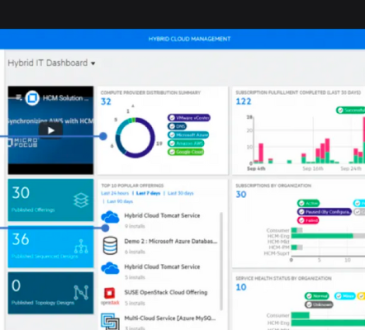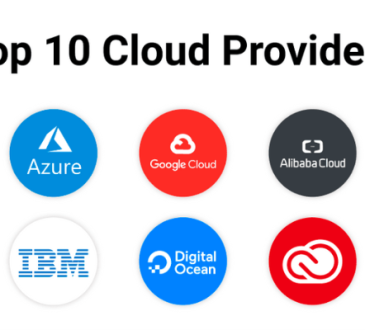
In recent years, the healthcare industry has witnessed a significant transformation with the advent of cloud computing. Healthcare cloud computing companies have emerged as key players in this technological revolution, offering innovative solutions to streamline processes, enhance patient care, and improve overall efficiency in healthcare organizations. This article explores the landscape of healthcare cloud computing companies, their services, benefits, challenges, and future prospects.
Contents
The Rise of Healthcare Cloud Computing Companies

The healthcare industry has traditionally relied on paper-based records and on-premises IT systems. However, the increasing need for secure, accessible, and scalable solutions has driven the rise of healthcare cloud computing companies. These companies leverage cloud technology to provide healthcare organizations with a range of services, including data storage, analytics, telemedicine, and patient engagement platforms.
Services Offered by Healthcare Cloud Computing Companies
a. Electronic Health Records (EHR) Management: Cloud-based EHR systems allow healthcare providers to store, manage, and share patient information securely. Companies like Epic Systems, Cerner Corporation, and Allscripts provide comprehensive EHR solutions that enable interoperability, real-time updates, and efficient data exchange among healthcare professionals.
b. Data Analytics and Insights: Healthcare cloud computing companies offer powerful analytics tools that process large volumes of healthcare data, helping organizations derive valuable insights for improved decision-making. Companies like IBM Watson Health and Google Cloud provide advanced analytics platforms that facilitate predictive modeling, population health management, and clinical research.
c. Telemedicine and Remote Patient Monitoring: Cloud-based telemedicine platforms have revolutionized healthcare delivery by enabling remote consultations, virtual visits, and remote patient monitoring. Companies such as Teladoc Health, Amwell, and Doctor On Demand connect patients with healthcare providers through secure, user-friendly interfaces, expanding access to care and reducing costs.
d. Patient Engagement and Wellness Solutions: Healthcare cloud computing companies are empowering patients to take an active role in their own healthcare through digital engagement tools. Platforms like MyChart (Epic Systems) and Meditech’s Patient and Consumer Health Portal allow patients to access medical records, schedule appointments, receive personalized health information, and participate in their treatment plans.
Benefits of Healthcare Cloud Computing Companies

a. Scalability and Flexibility: Cloud-based solutions provide healthcare organizations with the ability to scale resources up or down based on demand. This flexibility allows for efficient management of peak loads, reduces costs, and ensures smooth operations during periods of high demand.
b. Cost Savings: By leveraging cloud computing, healthcare organizations can significantly reduce capital expenditures associated with maintaining on-premises infrastructure and hardware. Cloud-based solutions offer a pay-as-you-go model, allowing organizations to pay only for the resources they use.
c. Data Security and Compliance: Healthcare cloud computing companies invest heavily in security measures to protect sensitive patient data. They comply with stringent industry standards, such as HIPAA (Health Insurance Portability and Accountability Act) in the United States, ensuring data privacy and regulatory compliance.
d. Collaboration and Interoperability: Cloud-based systems facilitate seamless data sharing and interoperability among healthcare providers, enabling collaboration and coordination of care across different organizations and specialties. This leads to improved patient outcomes and a more holistic approach to healthcare delivery.
Challenges and Concerns
a. Data Privacy and Security: Despite robust security measures, concerns regarding the privacy and security of patient data stored in the cloud persist. Healthcare cloud computing companies must continually update their security protocols and encryption practices to address these concerns.
b. Interoperability Issues: Achieving interoperability among different healthcare systems and EHR platforms remains a challenge. Healthcare cloud computing companies need to develop standardized protocols and promote data exchange frameworks to ensure seamless interoperability.
c. Connectivity and Infrastructure: Reliable internet connectivity is crucial for healthcare organizations to access cloud-based services. In regions with limited internet infrastructure, access to healthcare cloud computing solutions may be hindered. It is important for healthcare cloud computing companies to work towards bridging the digital divide and ensuring connectivity in underserved areas.
d. Vendor Lock-In: As healthcare organizations rely more on cloud-based solutions, there is a concern of vendor lock-in. Switching between cloud providers can be complex and costly, making it essential for healthcare cloud computing companies to ensure data portability and compatibility with other systems.
e. Regulatory Compliance: Healthcare cloud computing companies must navigate complex regulatory frameworks to ensure compliance with data protection laws, such as HIPAA in the United States, GDPR in the European Union, and other regional regulations. Staying updated with evolving regulations and maintaining compliance can be challenging.
Notable Healthcare Cloud Computing Companies
a. Epic Systems Corporation: Epic Systems is a leading provider of EHR solutions used by major healthcare organizations worldwide. Their cloud-based platform, Epic Cloud Services, enables secure data storage, interoperability, and seamless sharing of patient information.
b. Cerner Corporation: Cerner offers a range of cloud-based solutions, including EHR systems, population health management tools, and revenue cycle management platforms. Their offerings focus on improving clinical workflows, data analytics, and patient engagement.
c. Google Cloud Healthcare: Google Cloud provides healthcare organizations with a suite of cloud services tailored for the industry. Their solutions include data analytics, AI and machine learning tools, and interoperability frameworks, empowering organizations to derive meaningful insights from healthcare data.
d. Microsoft Azure for Healthcare: Microsoft Azure offers a comprehensive set of cloud services designed specifically for the healthcare sector. Their offerings include secure data storage, AI-driven analytics, telemedicine platforms, and virtual health solutions.
e. Amazon Web Services (AWS) Healthcare: AWS Healthcare provides a wide array of cloud-based solutions for the healthcare industry, including data storage, analytics, telemedicine, and genomics research platforms. Their services prioritize scalability, security, and compliance with industry regulations.
The Future of Healthcare Cloud Computing Companies

a. Continued Innovation: Healthcare cloud computing companies will continue to innovate and develop new solutions to address the evolving needs of the industry. Advancements in AI, machine learning, and predictive analytics will further enhance clinical decision support systems, precision medicine, and population health management.
b. Interoperability and Data Exchange: Efforts will be made to improve interoperability standards and promote seamless data exchange among different healthcare systems and providers. Collaboration between healthcare cloud computing companies, industry associations, and regulatory bodies will drive these initiatives forward.
c. Enhanced Patient Engagement: Healthcare cloud computing companies will focus on developing patient-centric solutions that empower individuals to actively participate in their healthcare journey. Personalized health applications, remote monitoring devices, and virtual care platforms will become more widespread.
d. Integration with Emerging Technologies: Healthcare cloud computing companies will explore the integration of emerging technologies like blockchain, Internet of Things (IoT), and virtual reality (VR) to revolutionize healthcare delivery, secure data exchange, and enhance patient experiences.
Conclusion
Healthcare cloud computing companies have transformed the way healthcare organizations store, manage, and exchange information. With their scalable, flexible, and secure solutions, these companies have ushered in a new era of efficiency, collaboration, and patient-centric care. While challenges related to data security, interoperability, and infrastructure remain, the future holds immense potential for continued innovation and advancements in the healthcare cloud computing landscape, paving the way for a more interconnected and patient-centered healthcare ecosystem.



